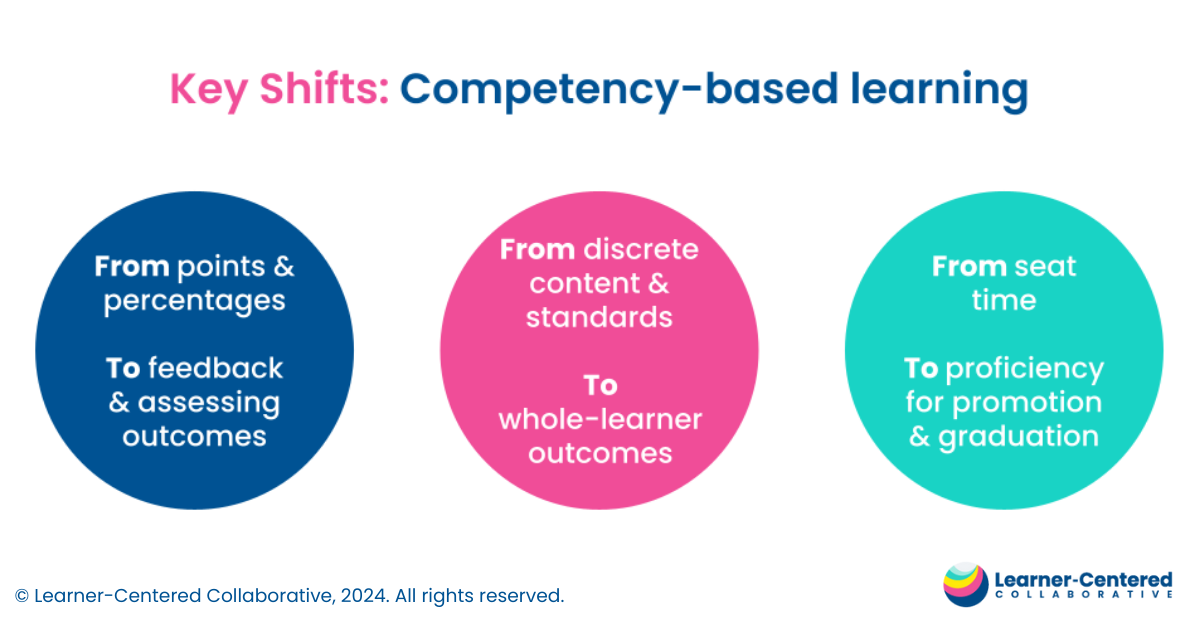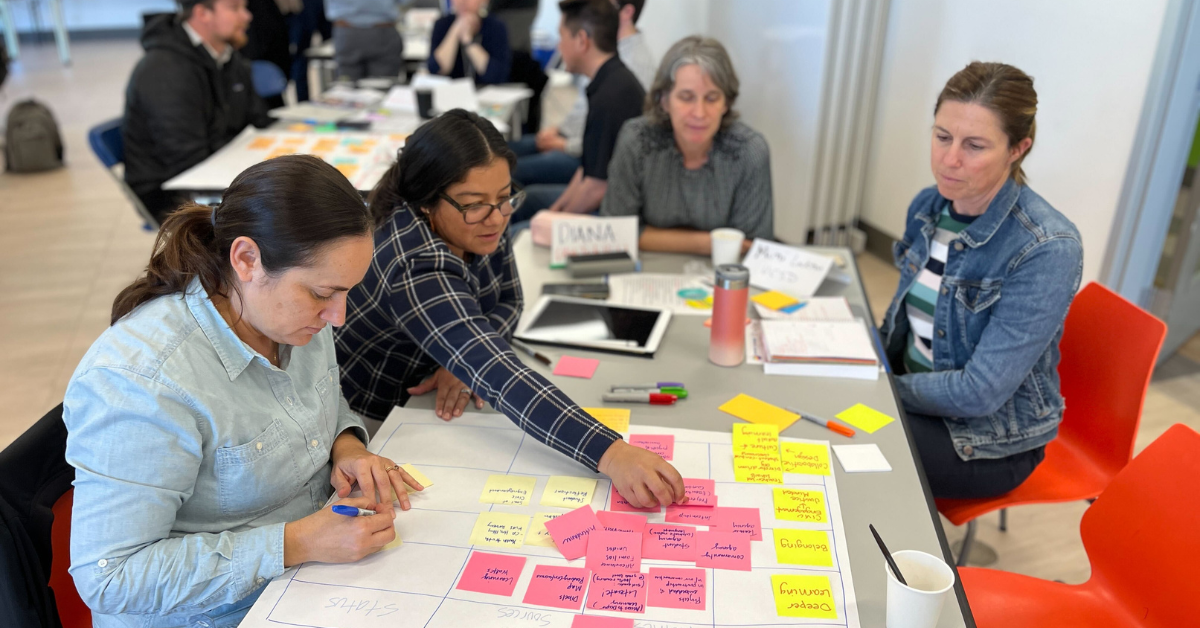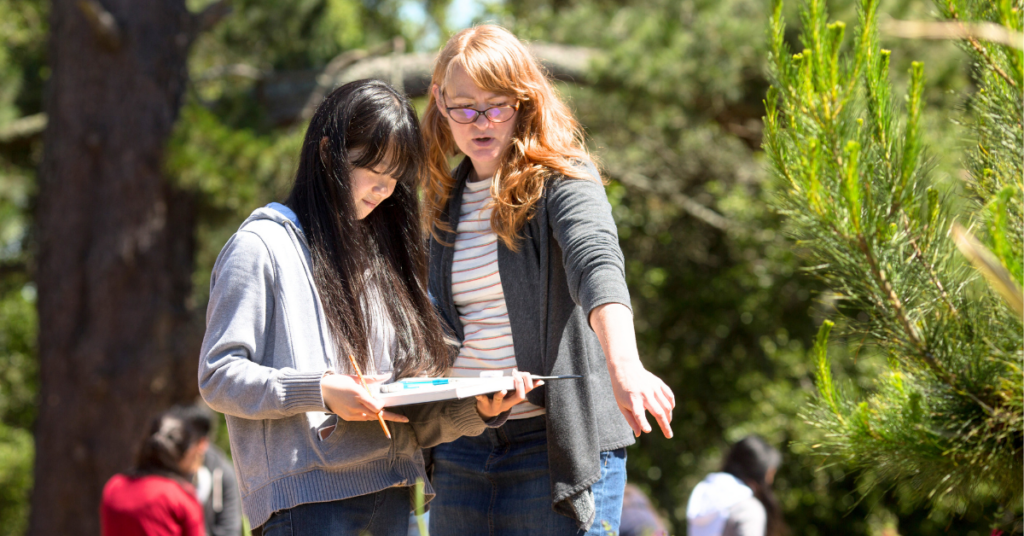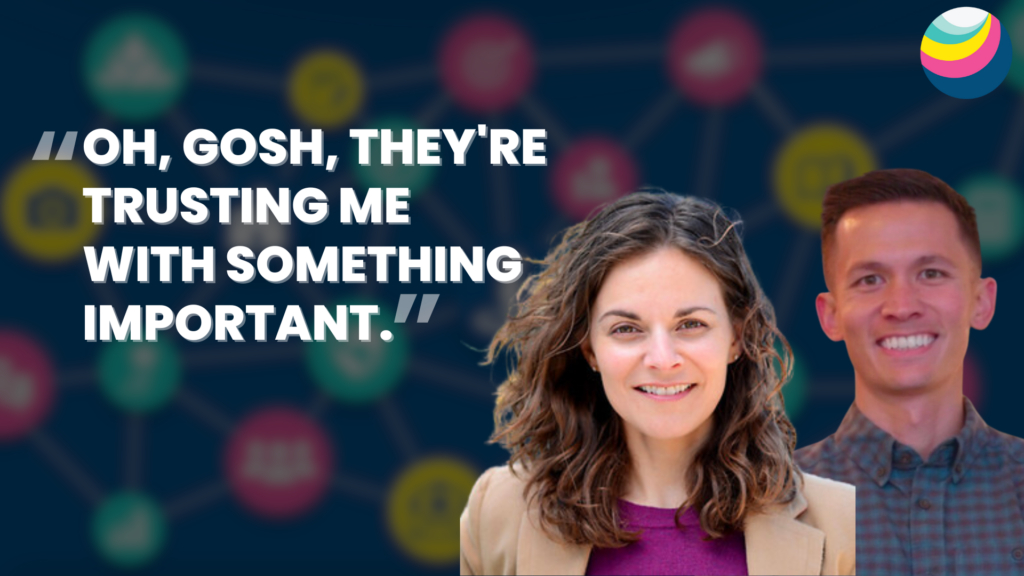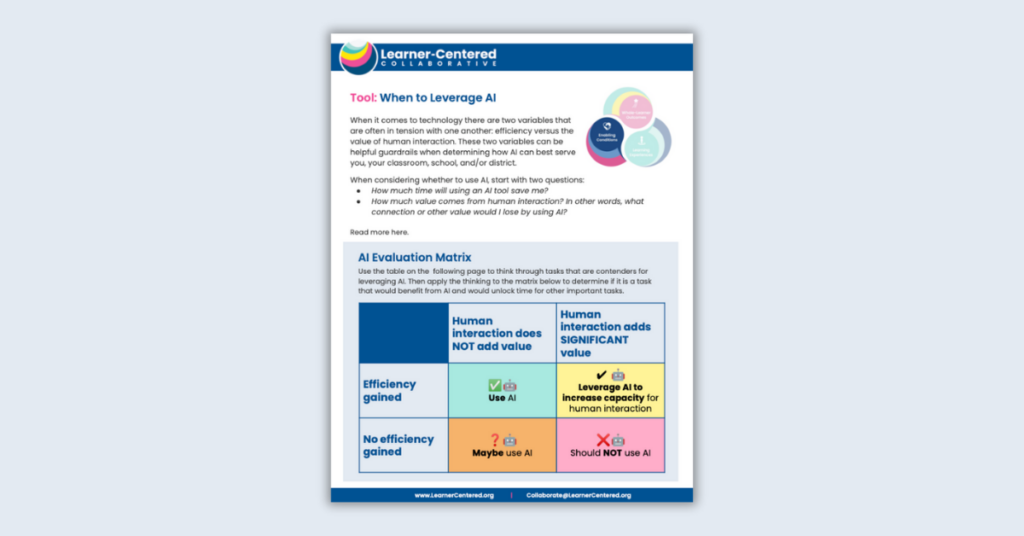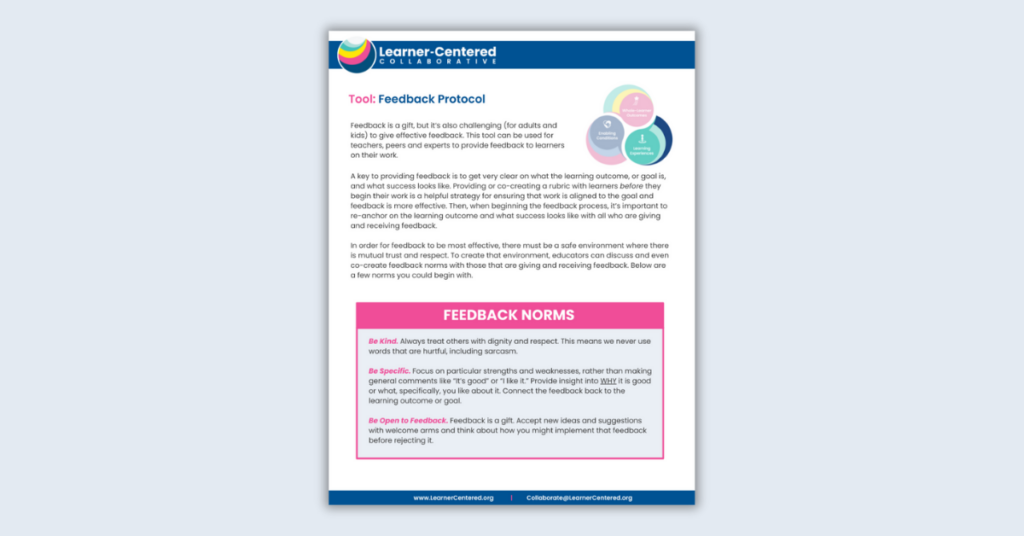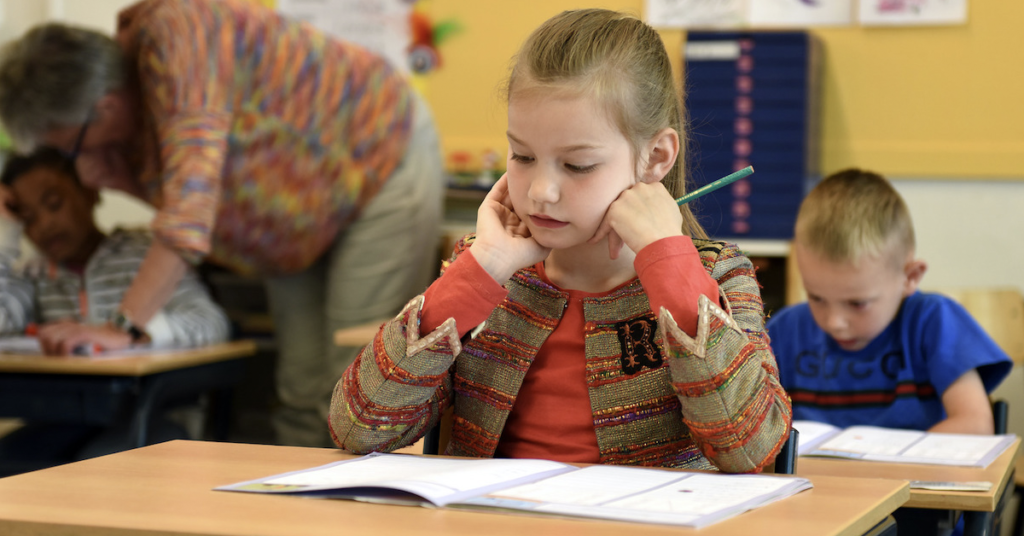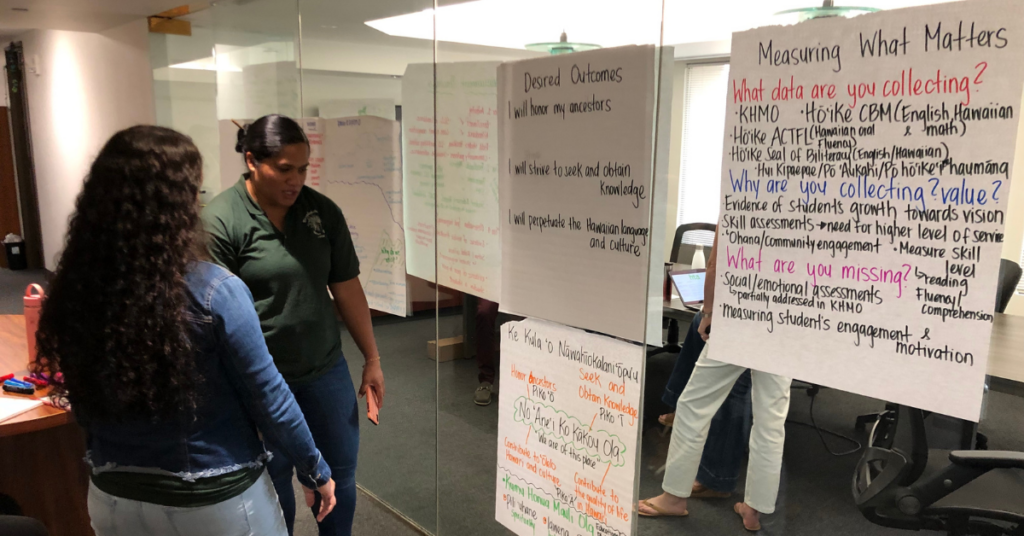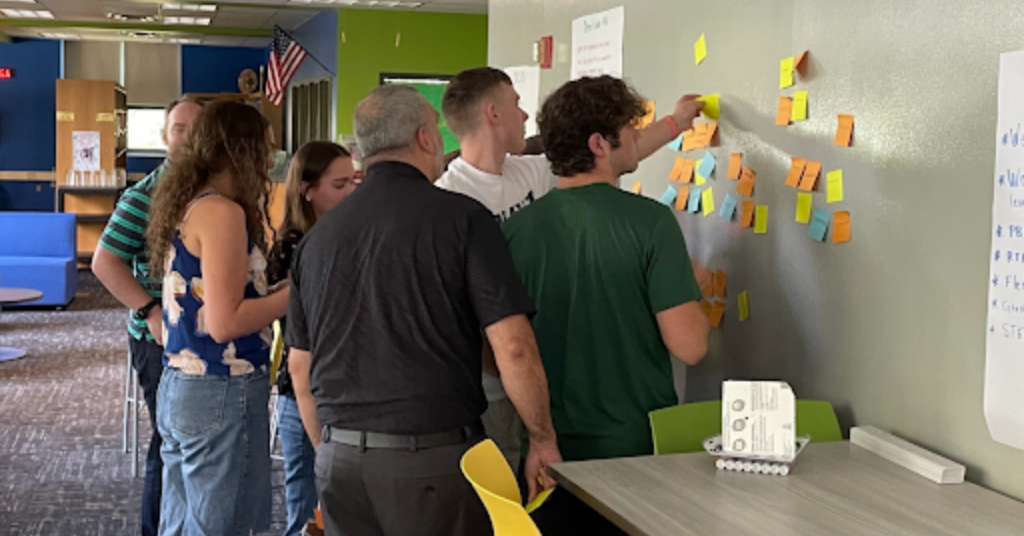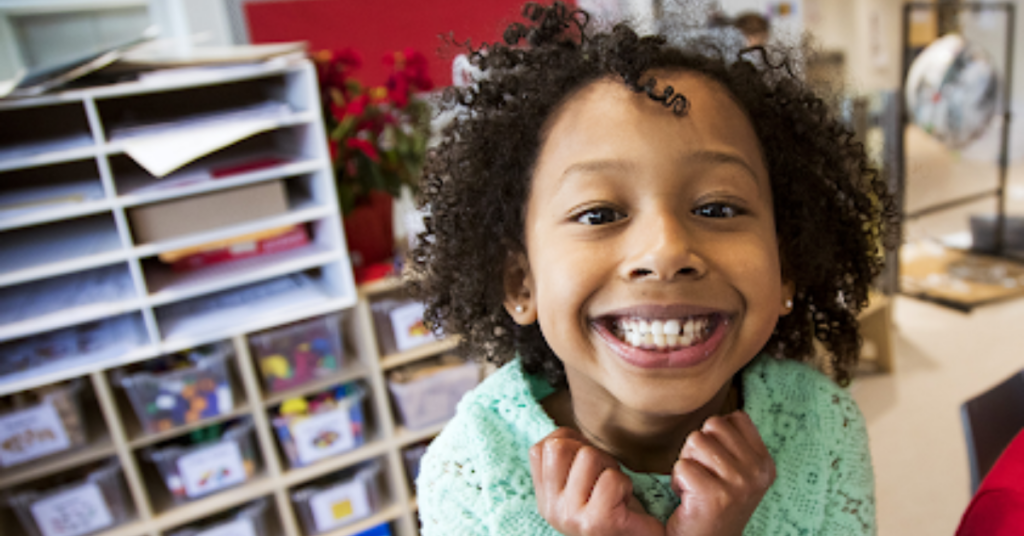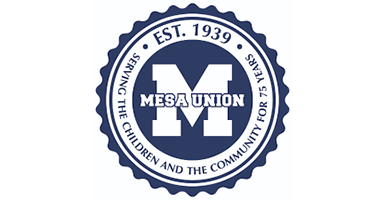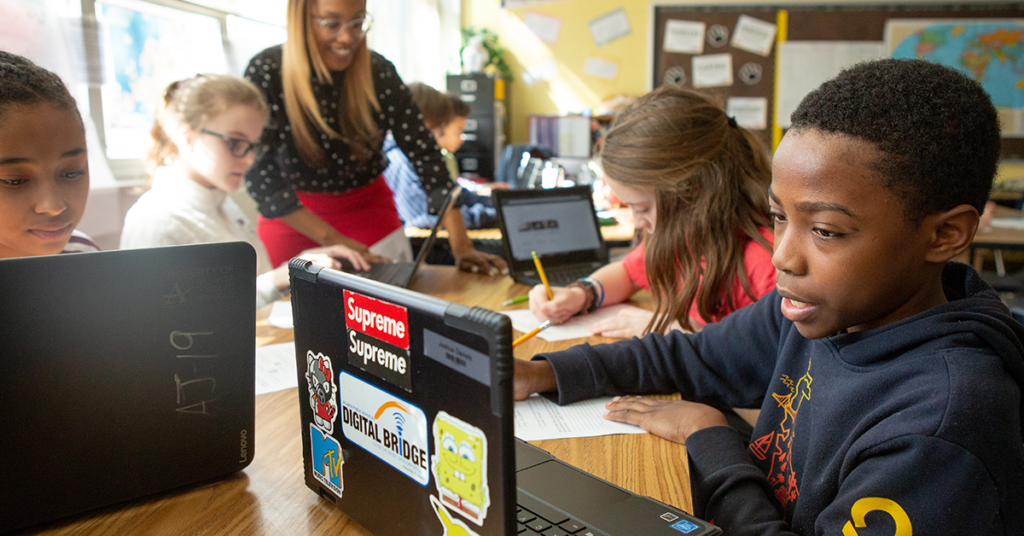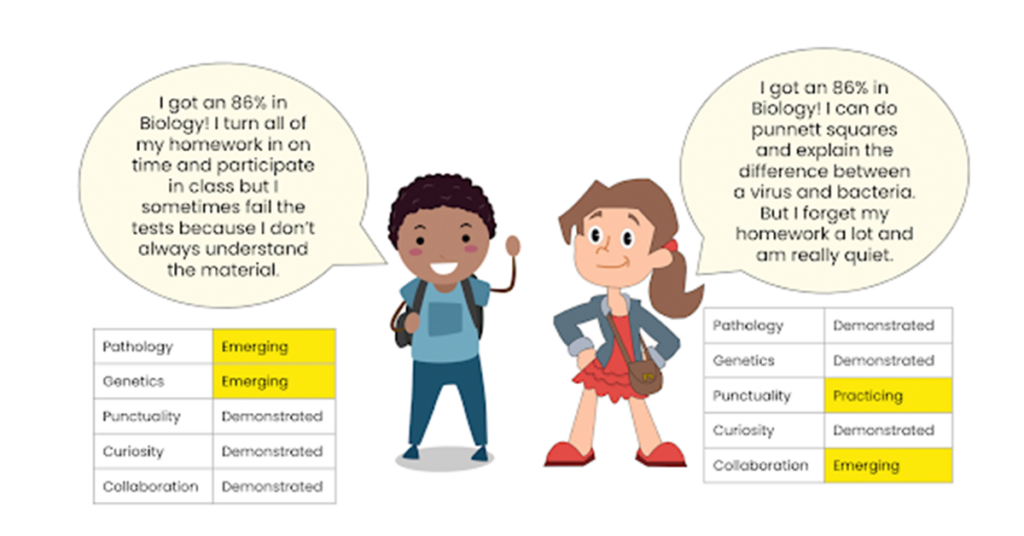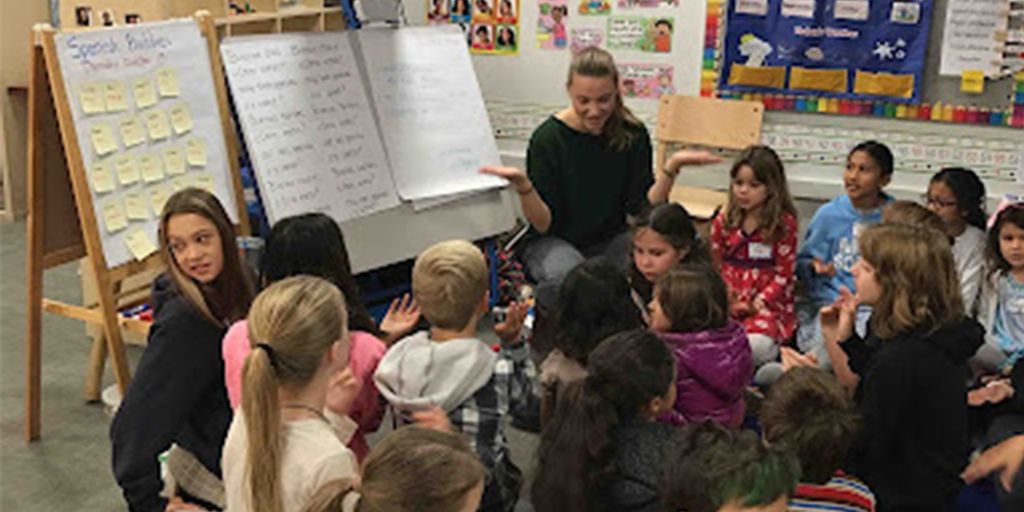Blog
3 Key Shifts from Traditional Grading to Competency-Based Learning and Assessment
This is the second blog post in a series on Competency-Based Learning from Bryanna Hanson. Read the first post on what competency-based learning is and why it’s important here. As a teacher, I quickly became frustrated by the limitations of the traditional grading system, one based on points, percentages and averages. This sparked my…
Blog
A Spotlight on the UCSD + LCC Research Convening: New Measures of Success
In July of 2023, the University of California, San Diego (UCSD) and the Learner-Centered Collaborative (LCC) announced a groundbreaking strategic partnership that would unite researchers, practitioners from LCC, and regional districts in advancing learner-centered practices. Among the key objectives of this partnership is to share knowledge and resources and disseminate findings to ensure broader…
Blog
Indiana’s Bold Step: Empowering Students with Employability Skills
Co-authored by: Brittany Griffin, Director of Strategic Partnerships, Learner-Centered Collaborative Lauren Cole, Vice President of Strategy and Operations, America Succeeds Eric Lerum, Senior Advisor, America Succeeds In the summer of 2022, the Indiana Department of Education (INDoE) embarked on an ambitious journey with the launch of its Employability Skills Innovation and Implementation (ESII) Grant.…
Blog
Competency-Based Learning: Shifting from Grading Points to Assessing Learning
Photo by Allison Shelley/The Verbatim Agency for EDUimages I started as a first year teacher, armed with a student teaching experience and a master’s degree, fairly confident that I was well prepared. If you are or have ever been a teacher, you are laughing right now because as you know, I figured out pretty…
BlogWebinars
Webinar Recording: Beyond Standards: Innovations in Competency Based Assessment
Tired of standardized tests and letter grades that fall short of capturing deeper learning? Explore the possibilities of competency-based assessment with school leaders at Embark Education as they: Explain the core principles and benefits of competency-based assessment. Share real-world examples and applications of competency frameworks in action. Provide valuable insights and lessons learned from…
Tools
When to Leverage AI
AI is here. With its arrival also comes a renewed tension often felt around technology: striking the balance of efficiency and valuable human interaction. This tool guides education practitioners and leaders to evaluate which tasks can best harness the power of AI, which are best left to be done by humans, and everything in…
Blog
How You Can (Almost) Have It All With AI: Optimizing the Balance of AI and Human Interaction
Written in collaboration with Brittany Griffin, Director of Strategic Partnerships There’s ample buzz around AI’s potential in K-12 education. It ranges from excitement, to concerns around ethical dilemmas, to debates about the efficacy of learning in front of a screen, to fear that technology will replace educators. Some have called for an all-in adoption…
Tools
Feedback Protocol
Here’s the scene: You provided really thoughtful comments on a completed assignment and your feedback was never even read! Say goodbye to spending hours on “dead-end” feedback. Reclaim the power of feedback with a flip in practice and timing that makes feedback an actionable part of the learning process that is aligned to learning…
Blog
Using Feedback to Drive Learning, Connection, Purpose, and Ownership
Meaningful feedback is not the same as a grade or an evaluation. Feedback is information for the learner about where they are in relationship to the goal or target to help them get there.
Blog
Scorecards: How Might We Measure What Matters In Schools?
Identifying strengths and possible Scorecard metrics with Hawaii Public Charter School Commission. There are many good reasons to have ways to determine if a school or school system is effective. For one, our schools are preparing our young people to be productive contributing citizens and (hopefully) thriving adults, so best to measure efficacy before…
Blog
4 Ways to Increase Inclusion and Engagement When Allocating Resources
If allocating resources is part of your job, keep these 4 learner-centered ways to increase inclusion and engagement in the process handy.
Blog
5 Tips for Implementing Learner Profiles
As school leaders, one of our most critical tasks is to balance coherence and flexibility in our educational institutions. Coherence refers to a unified vision and shared understanding among stakeholders, while flexibility allows for adaptability and responsiveness to individual student needs. A valuable tool for achieving this balance is the implementation of a learner…
Getting from District Mission and Vision to Implementation with Learners
Mesa Union is a small, tight-knit school district steeped in tradition dating back to its inception in 1939. As the community emerged from Covid-19 remote learning there was a growing awareness and consensus that they needed to rethink practices across the district so they could evolve and find new and better ways to support…
Blog
Empowering Digital Equity Through Digital Literacy
Students at Sutton Middle School use online research to answer questions during a lesson in history class. Photo by Allison Shelley for EDUimages Global pandemics. Advances with bot technology and artificial intelligence (hello, ChatGPT). Readily available and increasingly sophisticated tools, tactics, and tricks aimed at mass misinformation, content confusion, and emotional appeal. These are…
Blog
5 Ways to Bring More Inclusion and Equity into Your Classroom
We all want learners to feel comfortable, supported, and valued. Yet, putting this into practice is not always a given. Let’s change that.
Blog
A Learner-Centered Take on Homework
This learner-centered perspective on the age-old homework debate reframes the question away from what, when, and how much and brings us back to our why and imagining the possibilities of homework from there.
Blog
Overcoming Objections to a Competency-Based Approach
Clear the way for a competency-based learning approach with these tips for overcoming common objections to mastery-based assessment.
Blog
Uncovering the True Purpose of Assessment
In a learner-centered classroom, assessment is not done to but rather with the learner. Assessment becomes less about determining what a student doesn’t know or can’t do, but instead the emphasis shifts to providing opportunities for students to show what they do know and can do.
